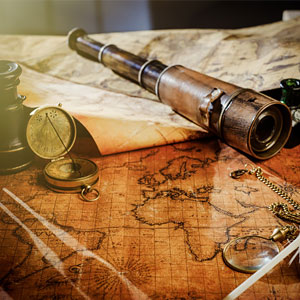

СДЕЛАЙТЕ СВОИ УРОКИ ЕЩЁ ЭФФЕКТИВНЕЕ, А ЖИЗНЬ СВОБОДНЕЕ
Благодаря готовым учебным материалам для работы в классе и дистанционно
Скидки до 50 % на комплекты
только до
Готовые ключевые этапы урока всегда будут у вас под рукой
Организационный момент
Проверка знаний
Объяснение материала
Закрепление изученного
Итоги урока

Экзамен ч.2
№ 6
I. 1. Read the story and say in 2—3 sentences what it is about.
Christmas Tree
Just before Christmas in 1944, a letter arrived at our house in Philadelphia. The postmark was from Tuskegee, Alabama, so we all knew who it was from. We excitedly gathered around Mother as she opened it.
My Dear Mother,
I did not get the leave I expected for Christmas. I will miss all of you. Please leave the Christmas tree up until I make it back. I hope to be home by March.
Love from your son,
Clifton.
I was 17 years old at the time. My heart sank. I felt a deep sadness that my favourite brother would not be home for Christmas. He was one of the Tuskegee Airmen1 and was responsible for maintaining2 the airplanes flying off to fight in World War II. My mother, being the optimist, said, “Well, it looks like we’ll get to have two Christmases this year!” After Christmas, my sister and I worked together to make sure we kept that Christmas tree looking as pretty as possible. This was no easy feat.
By midJanuary, the branches dropped so low to the ground that they became a sliding board for the decorations. Each day, ornaments would come crashing to the ground and there were new pine needles3 all over the wooden floor. My sister and I took turns sweeping them up. We moved the ornaments to the stronger branches on the tree, hoping they would stay on.
Each time we freshened that tree up, my sister and I were full of thoughts about Clifton and how happy we would be to see him again. It made us feel that he was close by, even though he was hundreds of miles away. On March 5, the doorbell rang. We ran to the door and gave Clifton a big hug. As he hugged Mother, I could see him looking over her head at the Christmas tree.
“It’s beautiful,” he said. “Thank you.” Clifton opened his presents and told us all sorts of stories about his work in Tuskegee. That night as we slept, we heard a crash in the living room. We all ran to see what had happened. The tree had toppled4 onto the sofa and there were needles and broken ornaments everywhere.
We all had a good laugh. It was fortunate that Clifton got home!
1 Tuskegee Airmen [tʌsˈkiːɡiːˈeəmən] пилоты из Таскиги
2 to maintain [meɪnˈteɪn] обслуживать, готовить
3 a pine needle [ˈpaɪnˌ niːdl] сосновая иголка
4 to topple [ˈtɒpl] опрокинуться, свалиться
2. The family got a message from Clifton. Find the extract which says about it and read it aloud.
3. What was Clifton’s job?
4. Which facts show that all the family loved Clifton very much?
II. Listen to three teenagers talking about homework and answer the questions below.
1. Why does the first speaker dislike doing homework?
2. What does the second speaker have regrets about?
3. What are the benefits of doing homework according to the third speaker?
III. Let’s talk about science and modern technologies.
№ 7
I. 1. Read the story and say in 2—3 sentences what it is about.
The Condemned Room1
Dear Mom,
I am working very hard on cleaning my room. But I want to go to Katy’s this afternoon to work on our Halloween costumes. Can I finish tomorrow? I would get up early and do it before breakfast and I’ll do a good job. Please, write back.
Love, The Prisoner in Tower # 3
Dear Prisoner, No.
Love, Mom.
For days Sam’s mother never came up to her room. And then one day Sam came home from school and found the Condemned sign on her door. Her mother had made the sign. It said: “The room is condemned. Its owner may not go anywhere or do anything until the area is restored”. In other words, Sam was to stay in until she cleaned her room.
It wasn’t fair. She was always getting the Condemned sign. Her brother hardly ever did. And his room was really disgusting, with posters of rock stars and basketball stars and movie stars wearing tiny bikinis covering every inch of his walls. But, her mother pointed out, his floor was clean and his desk as well. That was all she cared about.
Sam had been in her room for three hours now. She sat on the floor, looking at everything she was supposed to be putting away. It was possible she might be there all day. There were her clothes, lying high on her chair and overflowing onto the floor. Dirty shoes. An umbrella from when it rained on Tuesday. Library books. Magazines with pictures of cool teenmovie stars that Rebecca had given her. Her piano music from yesterday’s lesson. And different little things: nail polish remover, cotton balls, a tennisball, a note pad from Katy, rocks from rock collection they were making for science, pencils, chewing gum. And about twelve dirty handkerchiefs.
The thing to do, Sam decided, was sort everything into piles. A pile of dirty laundry, a pile of her dresser drawers, a pile to throw away. That was how her father, the organization man, would do it. She sighed. It was impossible to imagine she couldn’t leave her room all weekend. She decided to paint her finger nails instead.
1 a condemned room [kənˈdemd ˈruːm] комната, признанная небезопасной для проживания
2. The author tells us about her brother’s room. Find this extract and read it aloud.
3. What made Sam’s Mum write a message?
4. Is Sam going to clean the room? Why do you think so?
II. Listen to the conversation and answer the questions below.
1. Where was Tina going to?
2. What happened at the airport?
3. Why was Tina scared during the flight?
III. Let’s talk about art.
№ 8
I. 1. Read the story and say in 2—3 sentences what it is about.
Great grandad
It was a funny and surprising thing that brought Grandad back to me. It was algebra. I couldn’t cope with algebra in my first year at secondary school, and it made me mad. “I don’t see the point of it,” I screamed. “I don’t know what it’s for!”
Grandad, as it turned out, liked algebra and he sat opposite me and didn’t say anything for a while, considering my problem in that careful expressionless way of his.
Eventually he said, “Why do you do PE1 at school?”
“What?”
“PE. Why do they make you do it?”
“Because they hate us?” I suggested.
“And the other reason?”
“To keep us fit, I suppose.”
“Physically fit, yes.”
He reached across the table and put the first two fingers of each hand on the sides of my head.
“There is also mental fitness, isn’t there? I can explain to you why algebra is useful. But that is not what algebra is really for.”
He moved his fingers gently on my head.
“It’s to keep what is in here healthy. PE is for the head. And the great thing is you can do it sitting down. Now, let us use these little puzzles here to take our brains for a jog2.”
And it worked. Not that I fell in love with algebra. But I did come to see that it was possible to enjoy it. Grandad taught me that maths signs and symbols were not just marks on paper. They were not flat. There were threedimensional, and you could approach them from different directions. You could take them apart and put them together in a variety of shapes, like Lego. I stopped being afraid of them.
I didn’t know it at the time, of course, but those homework sessions helped me to discover my Grandad. Algebra turned out to be the key that opened the invisible door he lived behind and let me in.
Now I learnt that Grandad’s world was full of miracles and mazes3, mirrors and misleading signs. He was fascinated by riddles and codes and labyrinths4, by the origin of place names, by grammar, by slang, by jokes — although he never laughed at them — by anything that might mean something else. I discovered My Grandad.
1 PE [ˌpiːˈiː] физкультура
2 to take our brains for a jog [əˈdʒɒɡ] шевелить мозгами
3 a maze [meɪz] путаница
4 a labyrinth [ˈlæbərɪnθ] лабиринт
2. The author says she had problems with algebra. Find this extract and read it aloud.
3. How did the girl’s Granddad help her understand the subject?
4. What else did the author understand about her Granddad?
II. Listen to the member of the Greenpeace organisation telling a story about whales and answer the questions below.
1. How did Uncle Roger explain to the boy why the whales were on the beach?
2. How did the people help them?
3. How did this event affect the story-teller’s life?
III. Let’s talk about your future career.
№ 9
I. 1. Read the interview with a British businessman and say in 2—3 sentences what it is about.
AN INTERVIEW
Journalist: Do people in your country depend a lot on technology for communication?
Businessman: Yes. Everybody’s using all kinds of phones, mobiles and Internet services. I think the benefits of the computers cannot be denied. They save valuable time and space. Timeconsuming tasks such as checking bank accounts can now be done in a matter of minutes and a large volume of information is economically stored on tiny disks. In addition, with immediate access to the Internet, we can always keep up with global and current issues and explore the world from the comfort of our homes.
Journalist: Do you manage to keep up with the development of technologies?
Businessman: I think the fact that methods in business have moved ahead at such speed has meant that we generally have to keep up with it all, whether we want to or not. Otherwise, we’ll be left behind. In fact this need to keep up has also entered the home, where a lot of people spend much money on computer equipment when all they do is play games.
Journalist: How different would everyday life be without technological means of communication?
Businessman: Of course, life would be very different without all these means of communication. For those working in the world of business, life would be much more difficult as it would take much longer to get in touch with other companies and to come to agreement on important matters. Basically, if we didn’t have email systems at home or mobile phones, etc., it wouldn’t be the end of the world. I mean, we survived before, didn’t we?
Journalist: How do you feel about mobile phones?
Businessman: I personally find them useful and necessary. They’re convenient if there’s an emergency on a business trip or when you’re in the middle of nowhere or need to contact the police or your family for example. Though, I do feel that they are overused in many cases. Think about how many people spend hours just chatting about silly, unimportant things or looking through sites for no special reason even at work.
2. What are the benefits of the computers? Read aloud the extract which describes them.
3. How do businessmen benefit from using technological means of communication at their workplace?
4. When are technological means of communication misused?
II. Listen to the conversation and answer the questions below.
1. Where does the action take place?
2. What happened to the furniture in the grandmother’s room?
3. Why were Martin and his friend scared?
III. Let’s talk about your family.
№ 10
1. Read the article and say in 2—3 sentences what it is about.
What is a good family?
Building a successful family is like building a house. Both need a plan. The best way to be organised as a family is to talk about family matters. By doing this, families enjoy a special closeness and stability. Choosing to spend time with your family sends a message more powerful than words.
How much time should families spend together? That varies from family to family. Families with young children usually spend most of their time together because young children need a great deal of physical care and guidance. Families with teenagers may spend less time together because teens naturally want to spend more time with their friends. Healthy families keep a good balance between ‘too much’ and ‘not enough’ time together. They spend enough time to satisfy all family members.
Nothing unites a family more than its traditions which include different norms, ways of behavior, customs and views. In united families these traditions are deep-rooted and passed from generation to generation.
Strong families take time to be together and talk to one another. They share their hopes and dreams, feelings and concerns over common meals. Members of successful families feel they really belong to their family. They celebrate their victories and help each other learn from their mistakes. They do their household chores together and go to the theatre. At the same time, strong families adapt relationships and family rules when needs arise. Since no family knows what tomorrow will bring, being adaptive is a good trait for family members to develop.
Recent studies affirm the importance of love in families. Research shows that expressions of affection towards children reduce behaviour problems and help children’s development. Strong families notice and share positive aspects of each member. They notice the talents, skills and achievements, special qualities and characteristics that make the other person unique. They find ways to be positive even when another family member makes a mistake and make an effort to develop closeness and show love at home.
2. The author explains what makes a successful family. Find this extract and read it aloud.
3. What makes a family united?
4. How much time should family members spend together?
II. Listen to the girl speaking about her eating habits and answer the questions below.
1. What problem does the girl have?
2. What makes the girl think that her habit is harmful?
3. Why can’t she stop eating chocolate?
III. Let’s talk about youth and society.







